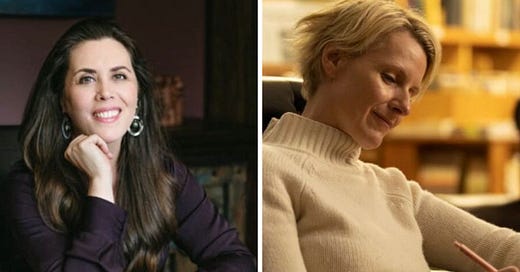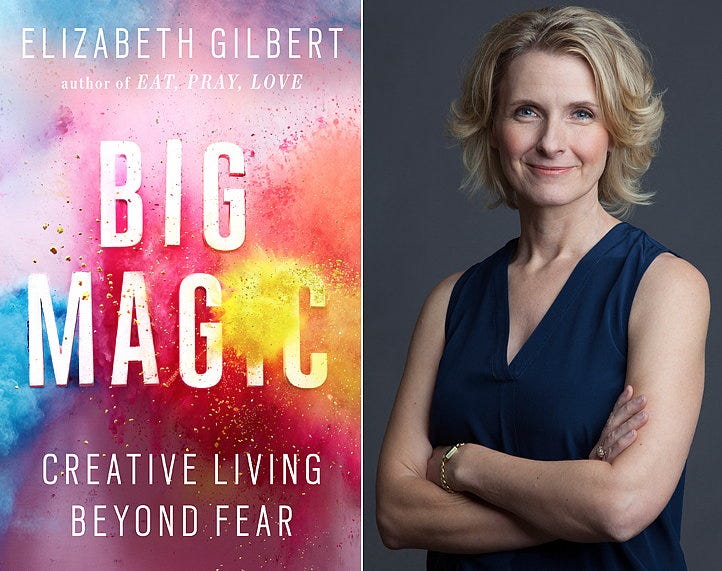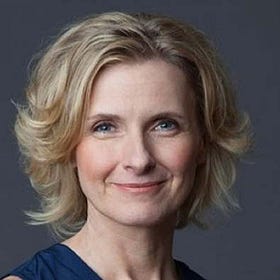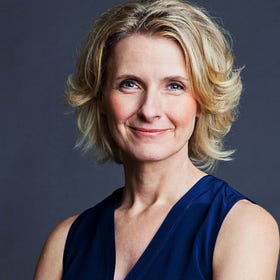Empowering conscious women (and men) to actualize their creative potential
Insights from Dr. Claire Zammit and Elizabeth Gilbert
"In spite of having so much 'power' in our lives, we both felt this very painful and confusing gap between the deeper potentials that we sensed for who we were as women..." Claire Zammit
"I want you to liberate yourself from the idea that [your art] has to save the world." Elizabeth Gilbert
One of the themes of my series of sites and publications is looking at ways we compromise our self confidence and authentic inner strength, and how we can become more empowered to be creatively expressive.
So what does this loaded term ‘power’ mean? With events like war and police reactions to protest marchers, there are plenty of examples of destructive political and military kinds of power.
The more important kind of power - for this post anyway - is internal, including how we think of ourselves and operate as creators in business and social systems in which creative work gets imagined and realized, or not.
In her article about the 2014 Disney movie “Maleficent” writer Rebecca Keegan quotes the star Angelina Jolie:
“For little girls like me, when we didn’t have the modern Disney we have today, we had a lot of princesses that didn’t have the strength. They had a sweetness … but not necessarily a power and a sense of self that was very strong."
Claire Zammit, PhD is an authority on coaching women, and founder of the programs Woman Centered Coaching and EvolvingWisdom.
Video about her main coaching program:
» Learn about free Woman-Centered Coaching Workshop with Claire Zammit.
» Her free eBook: The One Key Shift - How to Unlock Deeper Results in Your Work With Women.
~~~~~
In a podcast episode (The Keys to Feminine Power, hosted by Chantal Pierrat of Emerging Women), Dr Zammit comments about power:
"My teaching partner Katherine Woodward Thomas and the women that we were serving in the community we had started in Los Angeles—we had a center for transformation, and we were coaching women and working with women.
"And both of us were accomplished, successful women, as were the women we were serving.
"And we really noticed, in spite of having so much “power” in our lives, we both felt this very painful and confusing gap between the deeper potentials that we sensed for who we were as women, for the creative contribution, for the intimacy and connection of our relationships, and just for our overall experience of life."
Dr. Zammit adds, "We couldn’t quite put our finger on what it was, and we found that women everywhere were having the same experience as us."
From my post Feminine Power Products and Programs.
~~~~
See below for more videos with Dr Zammit, plus comments and podcast episode with Elizabeth Gilbert, and more.
In this video, a student of Zammit talks about one of those programs, and overcoming some of her challenges - challenges we may experience regardless of gender.
"I wasn't living into my heart, I wasn't living into who I really was...so Feminine Power gave me that opportunity to start relieving the numbness and really starting to complete my healing..."
This video is from an interview with Amanda B, who "left a toxic divorce behind and started attracting 10X the opportunities. The same year she started working with Claire Zammit, she successfully launched a group coaching program and multiple professional women’s circles."
Learn more about the ongoing free webinar Unlock Your Feminine Power with Claire Zammit.
~~~
This is an excerpt from one of her Instagram reels, from a series on how to deliver more transformational coaching for women clients.
In the reel she talks about the power of raising expectations - both for clients and yourself.
That may be something many of us are challenged by.
Related video by Dr. Zammit with more perspectives, such as understanding more about her own inner barriers in her work with women clients.
Also learn about a free workshop series by Claire Zammit: Woman-Centered Coaching Blueprint.
~~~
In her [free] eBook "The One Key Shift - How to Unlock Deeper Results in Your Work With Women," Zammit addresses coaches and therapists, especially women, but talks about issues that can affect any of us who want to be more self-realized and effective.
She writes, "Women make up a staggering 70% of clients in the 20-billion-dollar coaching and life- long learning industry.
“But entire fields—coaching, therapy, medicine and so many more—are not informed by the specific challenges and opportunities that hold women back."
She adds, “I had graduate degrees and prestigious coaching certifications, yet I would frequently feel something was going on in my work with clients that wasn’t enabling me to get to the deeper level of impact I wanted to have in my work.
“This sense of stuckness impacted my own confidence, ability to charge for my work, and ultimately get traction.
“I would frequently overgive of my time and energy to my clients in the hopes that it would help, which it didn’t—although it made me feel better about giving it my all.
“I decided to search for answers, and about 20 years ago I made a remarkable discovery…”
~~~~
Elizabeth Gilbert on Unlocking Your Creativity
From interview.
Claire Zammit: Among women especially, there’s an impulse to be living a more creative life and also to express our creativity in a way that really impacts and contributes to others. How did you do it?
Elizabeth Gilbert: I spend a lot of time talking to people about the creative projects that they want to do, and the first question that I ask them is, “Why do you want to do it?” [Oftentimes] their answer, not surprisingly, is, “I want to help people.”
And I think they’re generally very surprised by my response, which is always to beg them not to.
Art that is made with the intention of trying to help and save and rescue and transform people generally is not often the most beautiful, transformative, big-hearted, honest, and sometimes even savage art.
What I always try to tell people is, “I want you to do the work that sets your head on fire—your own head on fire. I want you to do the work that changes your imagination. I want you to do the work that ignites you and brings you to life; that makes you feel like just on fire and alive and delighted.
And I want you to liberate yourself from the idea that it has to save the world. And I want you to trust that if you are creating something that comes from an authentic, excited, original, and passionate place, it will change people’s lives accidentally and in strange and curious and unusual and unexpected ways.”
CZ: In Big Magic you say that you wrote Eat, Pray, Love to save yourself, essentially.
EG: If I had sat down to write Eat, Pray, Love with the intention of trying to change the lives of 10 million women, it would’ve been an entirely different book, and it might’ve been a completely unreadable book.
But instead, I wrote that book with the same impulse that I’ve written every single one of my books, which is, “I have something within me that I need to figure out. I have something within me I need to rescue myself from. I have something within me I need to express. I have something within me that’s brimming with curiosity. And I just have to make this thing or else I’m going to go insane.”
And you can like it or you can not like it. You can buy or you can not buy it. It can shape you or it can not shape you.
But the original impulse is that me, as an individual in this world, wants to put a mark of myself out into the universe. And then whatever happens to it next is kind of none of my business.
CZ: How did you know to value the contribution that you had, to trust that knowing?
EG: My kneejerk reaction is that my mother taught me that it was OK for me to take up space in the world. I know that not everybody grows up in a household where those things are encouraged, especially as girls—being allowed to have a voice, being allowed to have expression.
But from the very beginning my mom, who had not been given that message as a child … just thought, “No way. I’m not going to raise young women who are taught to be invisible.”
So she sort of allowed me to take up all the space I could, and I’m afraid I’ve been doing it ever since.
CZ: Someone gave you that permission. And there’s a valuing that we have to have of our voice and a kind of courage to come forward with it.
EG: It’s also the case that permission is the opposite of perfection, and perfection is what girls and women are constantly being coached to strive for. And it’s miserable, that goal, because it’s a trap and it’s a trick and it doesn’t exist. There’s no such thing as a perfect thing. There’s no such thing as a perfect contribution.
Unlocking Your Creativity - an interview with Elizabeth Gilbert (on Dr. Zammit's site Evolving Wisdom).
~~~~
Related posts
Elizabeth Gilbert on fear and being creative
In her TED Talk "Your elusive creative genius" Gilbert comments: "When I was a teenager, when I first started telling people that I wanted to be a writer, I was met with this same sort of fear-based reaction. "And people would say, "Aren't you afraid you're never going to have any success? Aren't you afraid the humiliation of rejection will kill you? Ar…
Elizabeth Gilbert on Self Acceptance
"I’ve kind of been a student of self-acceptance my whole life because I’ve had to be." Author Elizabeth Gilbert (“Eat, Pray, Love” and “Big Magic: Creative Living Beyond Fear”) was one of the speakers at the Self-Acceptance Summit produced by Sounds True.
~~~~~~







